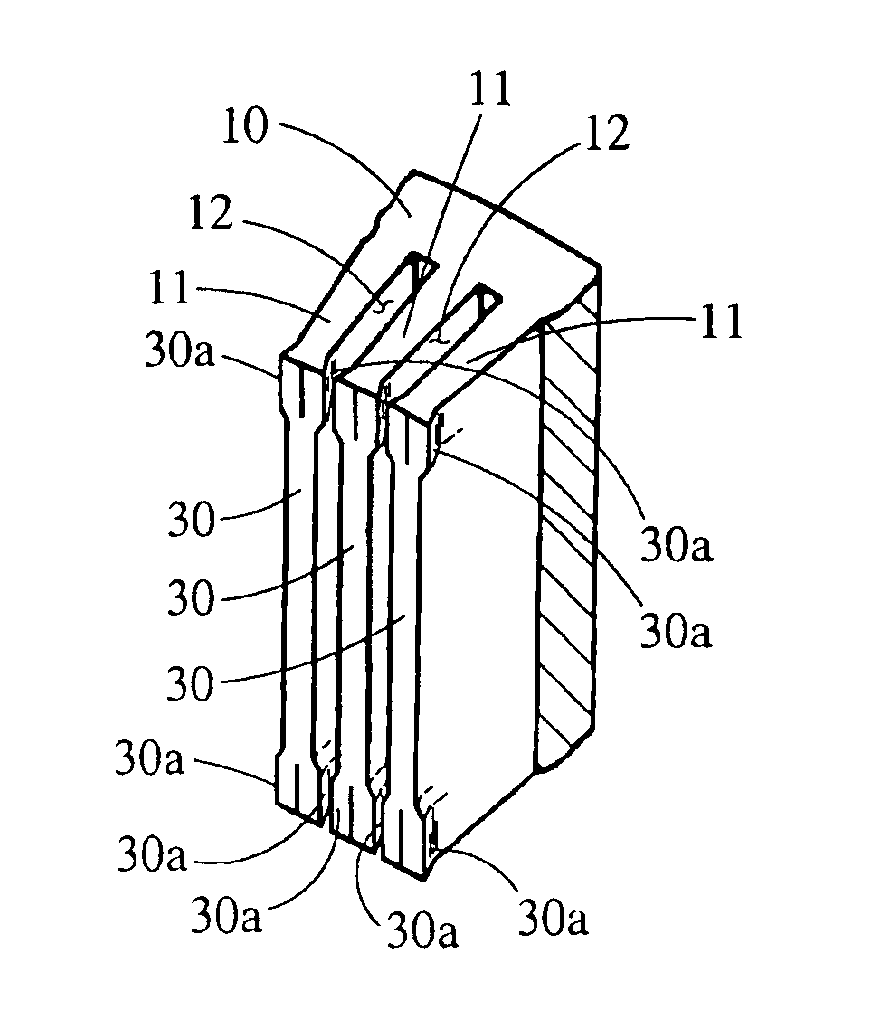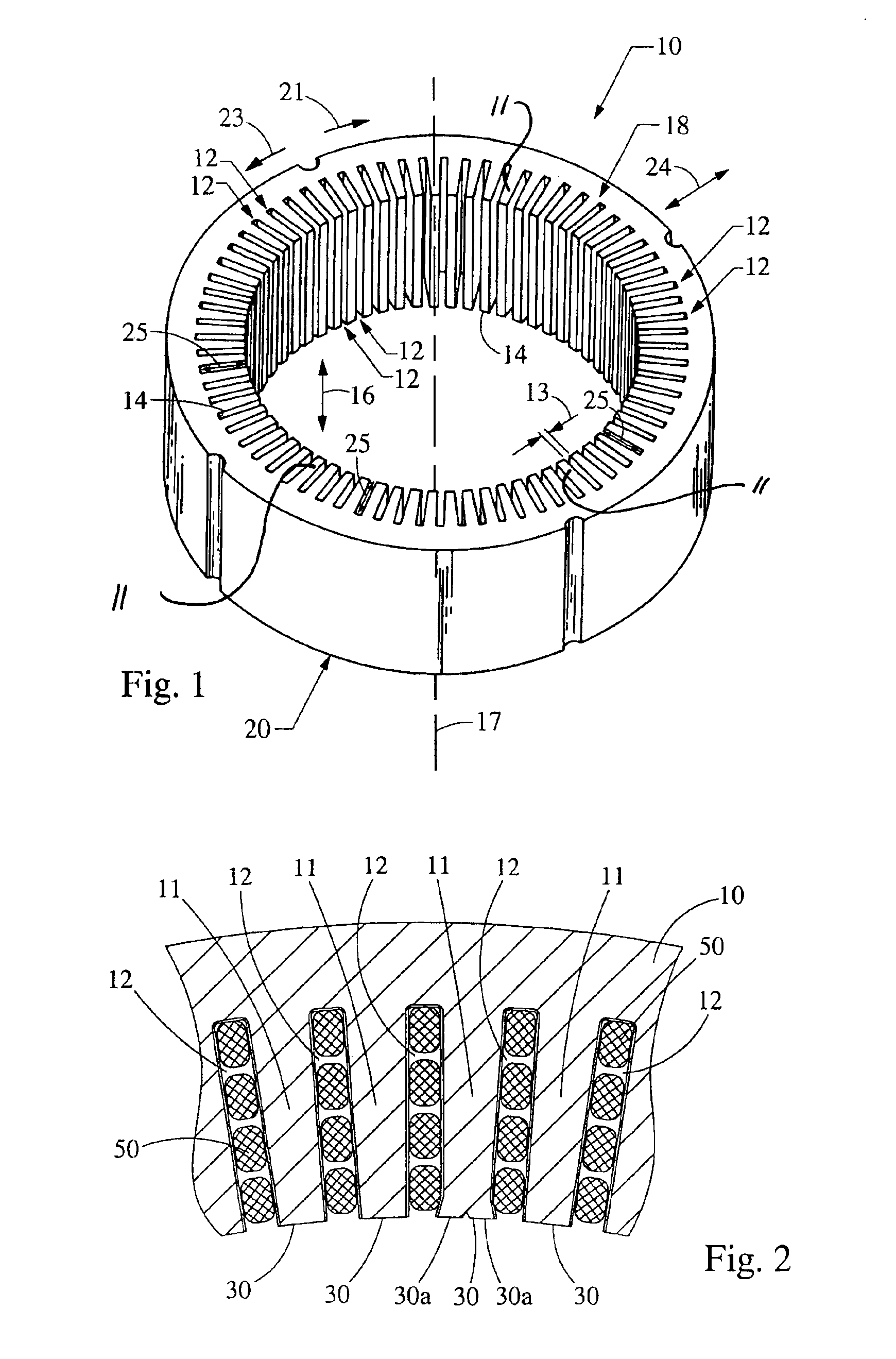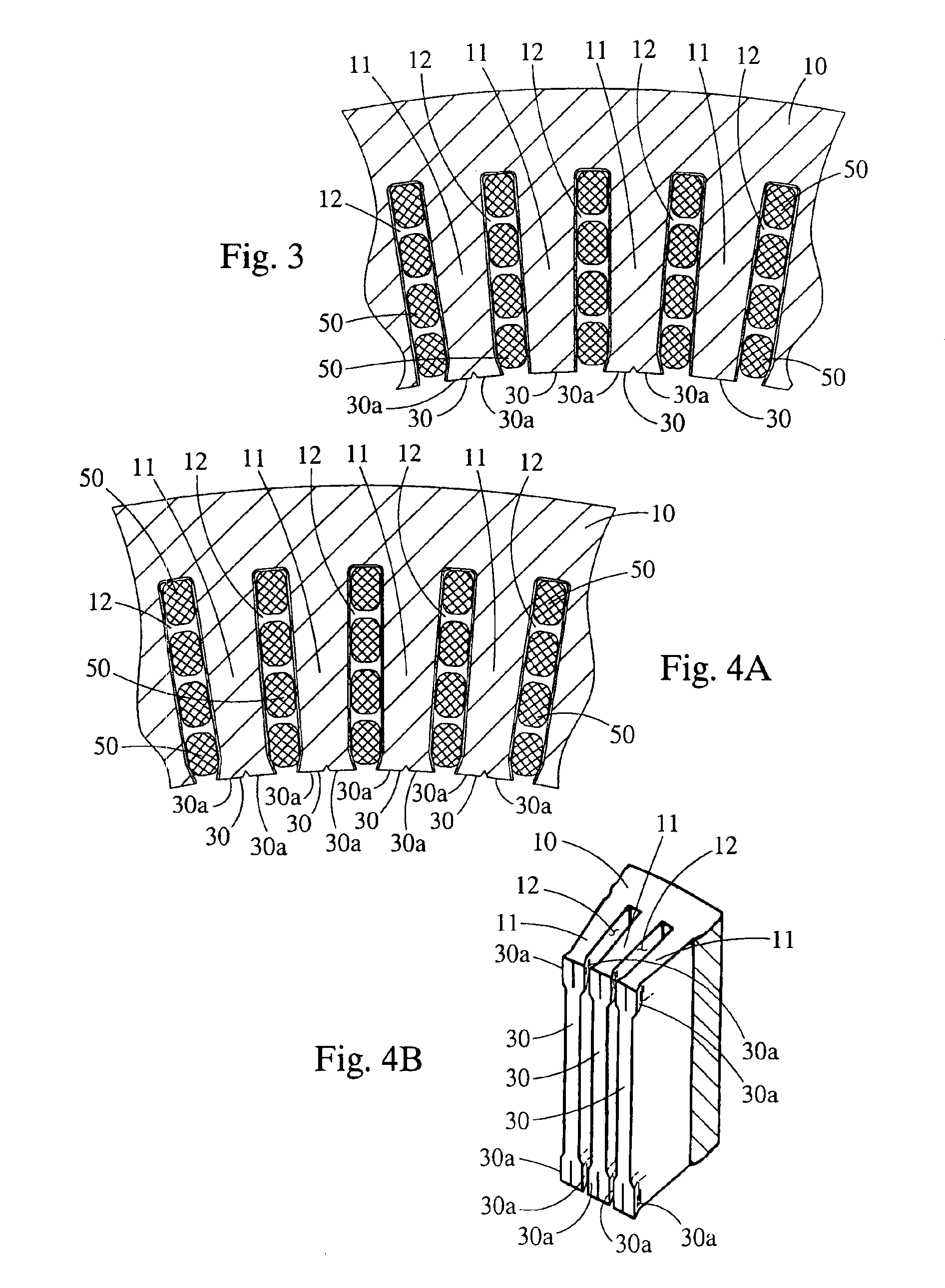Stator of a rotary electric machine having stacked core teeth
a technology of electric machines and stacked teeth, which is applied in the direction of windings, dynamo-electric components, synchronous machines, etc., can solve the problems of winding falling out of the core slots, complex process and tooling required to apply varnish, and difficulty in inserting wires whose width fits closely, so as to reduce the reluctance of air gap, reduce the potential of winding falling out of the slots, and increase the surface area of the distal end
- Summary
- Abstract
- Description
- Claims
- Application Information
AI Technical Summary
Benefits of technology
Problems solved by technology
Method used
Image
Examples
first embodiment
[0035]In the first embodiment, when forming the stator, the windings 50 are placed within the stator core 10 and tooling 32 is brought into contact with the distal end 30 of the core tooth 11 as shown in FIG. 5. Referring to FIG. 6, once the tooling 32 contacts the distal end 30 of the core tooth 11, additional force pushes the tooling 32 into the distal end 30 of the core tooth 11 forcing portions 30a of the distal end 30 of the core tooth 11 to flare outward. The flared portions 30a reduce the opening width of the core slot 12 to a size smaller than the width of the slot segments housed in the same core slot 12 such that the windings 50 cannot fall out of the core slots 12.
second embodiment
[0036]In the present invention, windings 50 are placed within that stator core 10 and tooling 32 that extends a substantial length of the stator core 10 is brought into contact with the ends of core teeth 11 as shown in FIG. 5. Referring to FIG. 6, once the tooling 32 contacts the end 30 of the core tooth 11, additional force pushes the tooling 32 into the distal end 30 of the core tooth 11 forcing portions 30a of the end 30 of the core tooth 11 to flare outward. The flared portions 30a reduce the opening width of the core slot 12 to a size smaller than the width of the slot segments housed in the same core slot 12 such that the windings 50 cannot fall out of the core slots 12.
[0037]As an alternative, the tooling 32 could be replaced with a roller-type tool 220 as shown in FIG. 9, that contains a plurality of protrusions 222. The roller-type tool 220 is inserted into the inside diameter of stator core 10 after the windings 50 are placed in the core slots 12. The roller-type tool 220...
PUM
 Login to View More
Login to View More Abstract
Description
Claims
Application Information
 Login to View More
Login to View More - R&D
- Intellectual Property
- Life Sciences
- Materials
- Tech Scout
- Unparalleled Data Quality
- Higher Quality Content
- 60% Fewer Hallucinations
Browse by: Latest US Patents, China's latest patents, Technical Efficacy Thesaurus, Application Domain, Technology Topic, Popular Technical Reports.
© 2025 PatSnap. All rights reserved.Legal|Privacy policy|Modern Slavery Act Transparency Statement|Sitemap|About US| Contact US: help@patsnap.com



